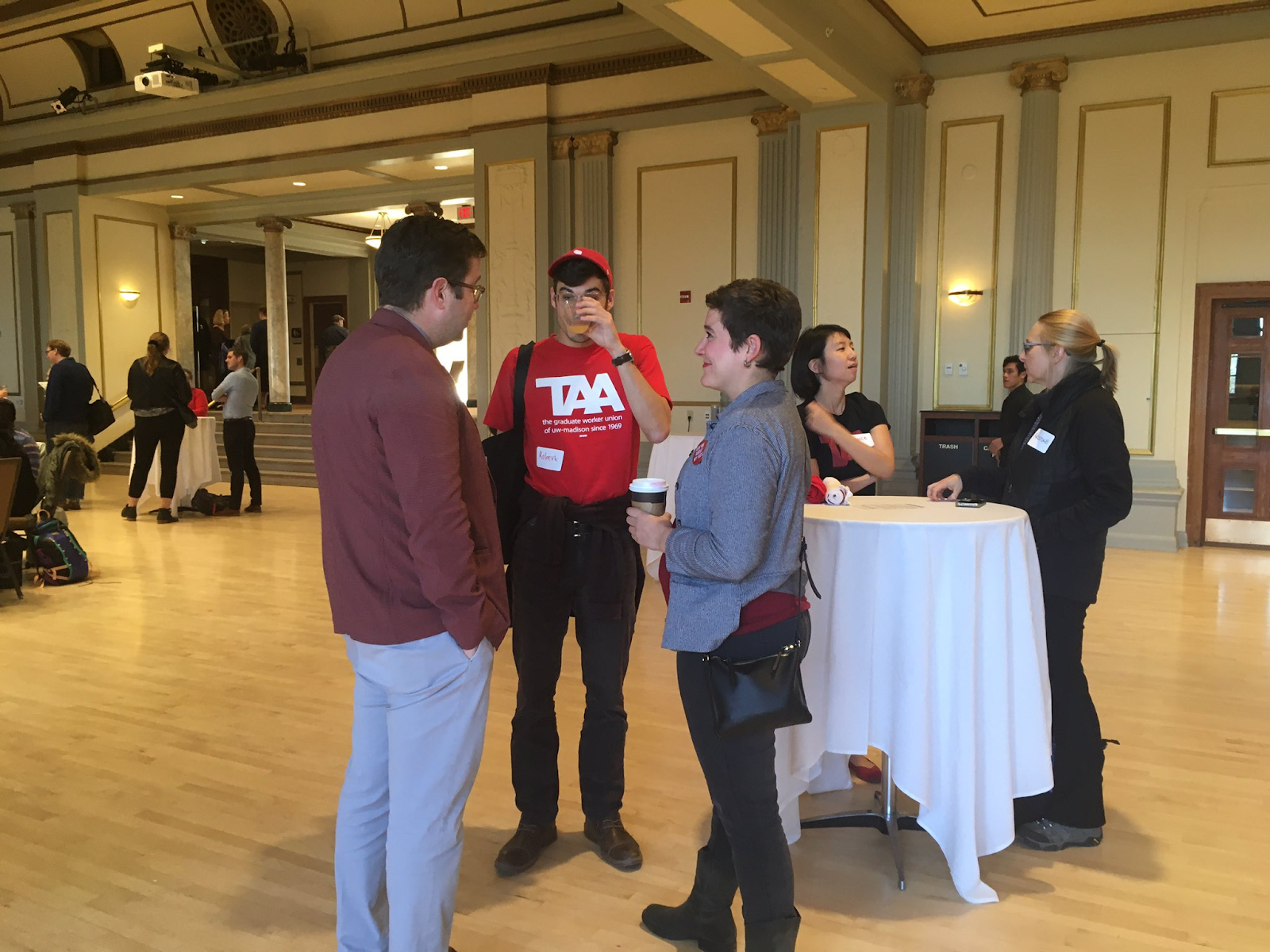University Workers Emphasize Importance of Shared Governance

A coalition of graduate workers and University Faculty and Academic Staff (UFAS) members interrupted a reception celebrating shared governance on Wednesday, shining light on how workers are shut out of university decision-making processes.
“We are never seriously consulted about things like fees, pay, increased resources for diversity and inclusion workers, and benefits,” sociology graduate student and TAA Co-President Sara Gia Trongone said. “That’s why we’ve had to resort to direct action.”
TAA and UFAS members mingled with faculty, administrators, and staff at the reception, sharing stories of how members of the university community had been shut out of decisions that affected their workplace policies and conditions. TAA co-president Robert Christl also spoke directly with Vice Chancellor for Finance Laurent Heller about re-starting discussions with union representatives.
The shared governance reception is an annual event that “marks the significant role of shared governance in decisions regarding academics, research, campus climate, diversity, human resources, and more,” according to the university.
“I really have been blown away by the shared governance traditions here at UW–Madison,” Heller said in prepared remarks. “ … we’re much stronger for it.”
Yet in reality, shared governance often exists in name only.
In a blatant violation of shared governance, university administrators released their own version of the Graduate Assistant Policies and Procedures (GAPP) handbook this summer, cutting out commitments to a process of continual policy review involving graduate workers. The move ignored two years of discussions with the TAA — and stands in stark contrast to the university’s stated commitment to involving workers in policy decisions.
University administrators, including Heller, have also expressed reluctance to speak with the TAA since a meeting last spring in which Dean of the Graduate School William Karpus pushed a graduate worker and called the police on peaceful union protesters. The university has not issued an apology for Karpus’ conduct.
When shared governance works, it benefits all members of the university community. A UFAS campaign that successfully won a pay raise for Faculty Assistants was endorsed by shared governance bodies, which played an instrumental role in making the campaign a success.
“The real spirit of shared governance is powerful,” Trongone said. “It demands that folx have a say in the policies and processes that affect their lives.”
To stand with the TAA and UFAS in support of shared governance, share a time when your voice was dismissed by your department or university administration on social media using the hashtags #SharedGovernanceNow and #ActionNotPromises.
